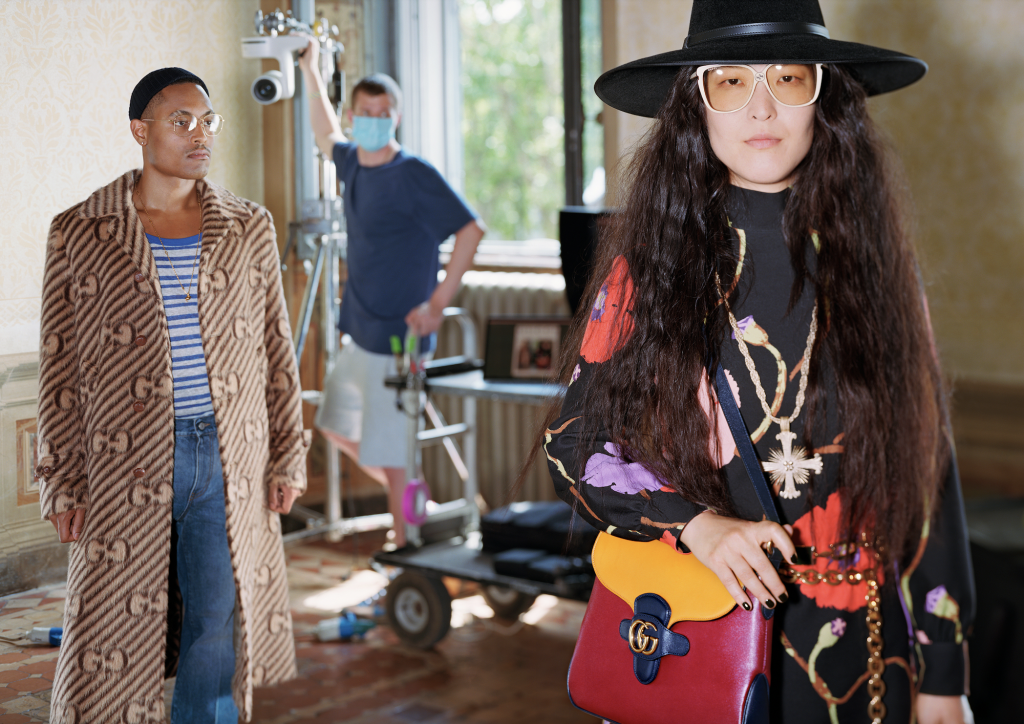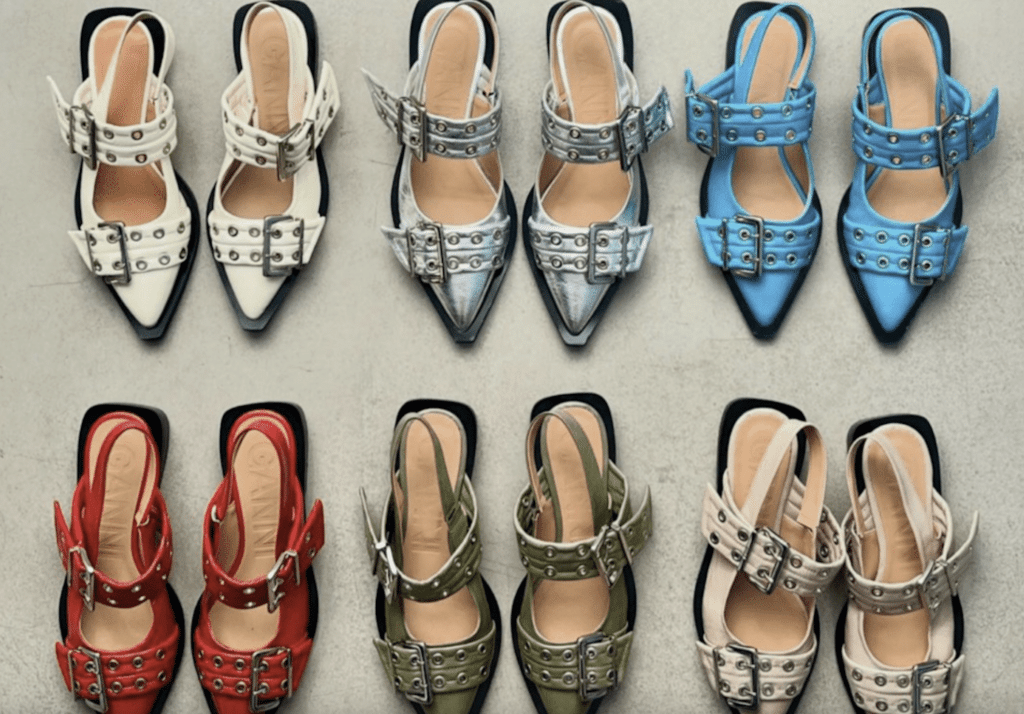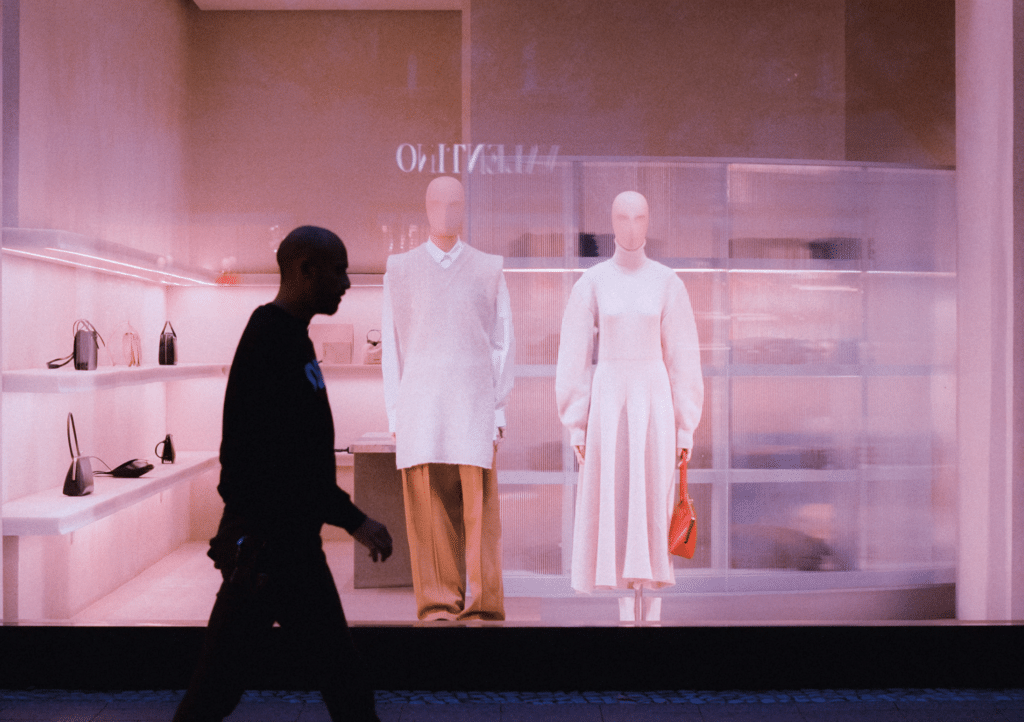In a first for Facebook, the social media giant is teaming up with a famed fashion brand in a quest to stomp out fakes on its widely-used platforms. According to the joint lawsuit that they filed on Monday in the U.S. District Court for the Northern District of California, Facebook, Inc. and Gucci America claim that a single defendant – a woman named Natalia Kokhtenko – is on the hook for operating “an international online business, trafficking in illegal counterfeit goods,” which has seen her use the “Facebook and Instagram [platforms] to promote the sale of [luxury brand] counterfeit goods,” such as Gucci handbags, shoes, clothing, and accessories, and running afoul of trademark law and “Facebook and Instagram’s terms and policies” in the process.
In the newly-filed trademark infringement and counterfeiting complaint, Facebook and Gucci allege that “since at least April 2020 and continuing until at least April 26, 2021,” Moscow-based Kokhtenko has “used multiple Facebook and Instagram accounts to promote her online stores available at brends-msk.ru, luxprimer.ru, and agentromanova.rum,” from which she has sold an array of counterfeit designer goods. Specifically, Gucci and Facebook claim that by way of “more than five Facebook accounts and more than 150 Instagram accounts across multiple devices,” Kokhtenko promoted websites where she listed “dozens of counterfeit products for sale,” including “Gucci-branded goods that were not genuine products of Gucci and that were materially different from Gucci’s genuine products.”
Despite agreeing to Instagram and Facebook’s terms of service when she signed up for – and used – these platforms, such as the social media behemoth’s prohibition against users “doing anything that ‘infringes or violates someone else’s rights, including their intellectual property rights,’” Facebook and Gucci claim that Kokhtenko has consistently used the platforms “to promote the sale of Gucci-branded counterfeit goods and the unauthorized use of several of Gucci’s registered trademarks, including its house mark GUCCI, a number of stylized Gucci and GG marks, and [its] Green/Red/Green Signature Webbing.”
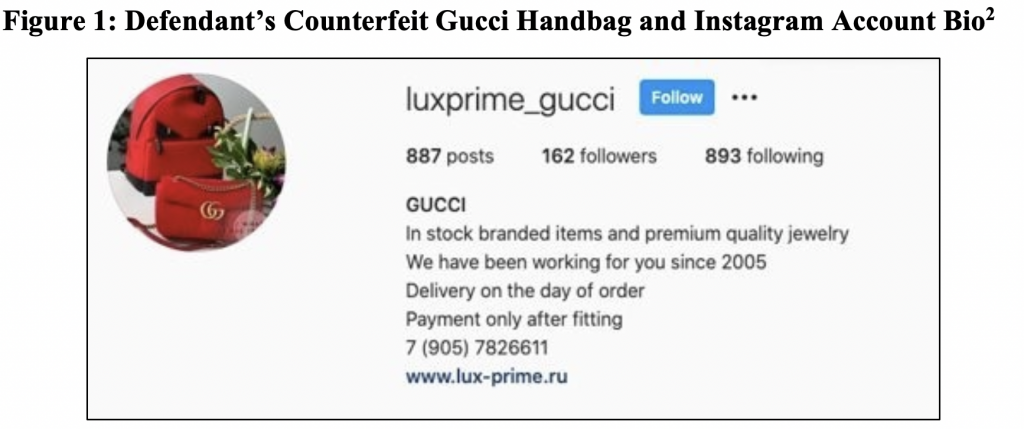
After discovering Kokhtenko’s accounts and corresponding websites, Gucci asserts that one of its agents purchased a number of products from her in late 2020, and confirmed that each of those goods was counterfeit. Against that background, Gucci alerted Facebook to Kokhtenko’s activity, which prompted the Menlo Park, California-based company to make its latest attempts to disable her accounts. Facebook asserts that “since 2015, to protect Facebook and Instagram users and in response to several reports by Gucci and other brands, [it] has taken multiple enforcement actions against [Kokhtenko] for violating its Terms, including as recently as April 26, 2021.” These actions “include disabling [more than 160 of her] accounts on Facebook and Instagram, removing [more than 125 posts] that promoted counterfeit products, and sending various notices to [Kokhtenko] about her violations of the Terms.”
Nonetheless, Facebook claims that Kokhtenko has “continued to access and use Facebook and Instagram without permission and used deceptive tactics to avoid detection and further enforcement.” Among other things, Facebook claims that after it disabled “several” of her accounts, Kokhtenko “used automation software that allowed her to create user accounts in bulk, while misrepresenting how she was accessing Facebook computers, to circumvent Facebook technological measures.”
In light of such alleged activities, the parties claim that Kokhtenko’s sale of counterfeit or otherwise infringing products “is likely to cause confusion or to cause mistake or to deceive [her] customers or potential consumers and the public as to the source or sponsorship of [her] goods.” In other words, “Consumers are likely to be misled into believing that [her] products are manufactured by, licensed by, sponsored by, approved by, or otherwise associated with Gucci.” The fashion brand sets out trademark infringement, counterfeiting, and federal and state unfair competition causes of action against Kokhtenko, while Facebook claims that she is on the hook for breach of contract by virtue of her alleged failure to adhere to both Facebook and Instagram’s terms of use.
“By taking the actions described above, including by using her Facebook and Instagram accounts to promote counterfeit Gucci goods for sale on her] websites,” Facebook argues that Kokhtenko breached those terms, and thus, the legally-binding agreement she entered into with the social media company as a result of her use of its platforms/services.
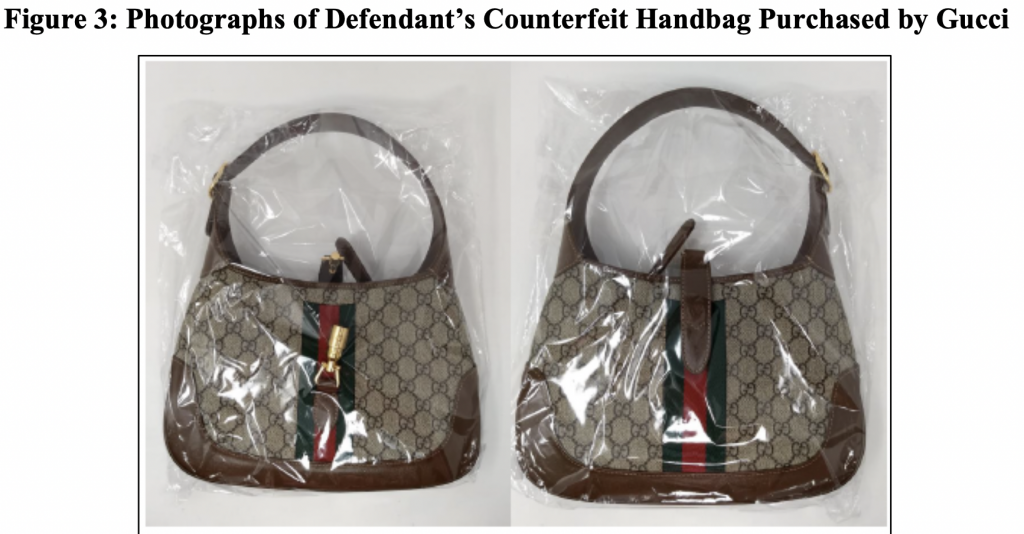
Both Facebook and Gucci are seeking injunctive relief to bar Kokhtenko from continuing to engage in such alleged behavior, including a formal order to she refrain from infringing Gucci’s trademarks and from “accessing or attempting to access Facebook’s services, platforms, and computer systems, including Instagram,” among other things. Gucci is also seeking monetary damages to the tune of three times “any profits realized by Kokhtenko by reason of [her] unlawful acts,” or in the alternative, statutory damages of $2,000,000 “for each and every one of the prohibited marks counterfeited.”
In a joint statement on Monday, Facebook asserted that it “take[s] intellectual property issues, and particularly issues around counterfeiting seriously, and their terms strictly prohibit IP infringement, including the sale or promotion of counterfeit products.” It asserted that “working and collaborating with brands like Gucci has helped Facebook and Instagram develop a robust IP protection program,” which has seen it “remove more than one million pieces of content in 2020, based on thousands of reports of counterfeit content from brand owners, including Gucci.” At the same time, Gucci stated that “this action confirms [its] strong strategic IP enforcement plan, which the brand has implemented to combat counterfeiting and infringement both online and offline at all levels – from manufacturing and distribution, to promotion and selling,” and which “resulted in 4 million on-line counterfeit product listings disabled, 4.1 million counterfeit products seized off-line, and 45,000 websites, including social media, disabled” in 2020, alone.
The two companies say that the lawsuit – which comes on the heels of similar efforts by Amazon, which has teamed up with brands like Valentino for trademark-centric litigation – “is a natural next step in the progression of [their] collaboration, whereby the two players could combine their respective resources and expertise to hold those who abuse Facebook and Instagram by promoting counterfeits accountable, to clearly signal that such abuse will not be tolerated, and to provide consumers with a safer and trusted social networking and shopping environment online.”
In much the same vein as Amazon, Reuters notes that “groups like Facebook are keen to make a bigger push into the luxury market and ‘social commerce,’ but to do so they need to show that their platforms are not a conduit for counterfeiting and are safe for brands, some of which are reluctant to sell their products through third-party players.”
The case is Facebook, Inc., and Gucci America, Inc. v. Natalia Kokhtenko, 3:21-cv-03036 (N.D. Cal.)




